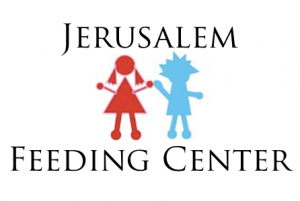Feeding Therapy
We help your child progress through the stages of feeding by creating an overall enjoyable and safe feeding experience.
Speech & Language Therapy
Treating both English and Hebrew speech issues while helping you navigate the education system to best help your child.
Education
Group and private sessions, lectures, coaching and phone or Skype consultations available.Feeding Therapy

Did you know? Research shows that more than 25% of all children have some kind of feeding delay that requires intervention?
We are a dynamic, innovative, and experienced practice dedicated to feeding therapy and speech and language services. We help your child progress through the stages of feeding by creating an overall enjoyable and safe feeding experience. All the while, empowering you and your child to overcome and achieve. Utilizing a holistic approach, we view each child as the individual that they are, and construct a feeding program tailored to meet his or her specific needs.
Frequently Asked Questions – Feeding Therapy
What are the signs that my child might need a feeding evaluation?
- Slow feedings( mealtimes typically longer than 30-40 minutes)
- Sudden change in feeding patterns
- New problems with feeding
- Cessation of or difficulty with breathing during feeding or drinking
- “Gurgly/wet” vocal quality before, during and after swallows
- Uncoordinated sucking and swallowing pattern during drinking
- Significant drooling or oral weakness observed
- History of recurrent pneumonia
- Irritability or behavior problems during meals
- Food refusal
- Reduced or limited intake
- Food refusal
- History of GERD
- Food selectivity by type and/or texture
- Oral motor deficits
- Delayed feeding development
- Food or swallowing phobias
- Mealtime tantrums
- Sleepiness during feedings
- Failure to gain weight over 2-3 months
- Unexplained weight loss
- Diagnosis of a disorder associated with feeding and swallowing difficulties
- Does not achieve age appropriate feeding behaviors
- Not spoon feeding by 9 months
- Does not transition off of puree textures
- Poor bottle/cup drinking
What can I expect during a feeding evaluation?
There are generally five things we do to evaluate your child for a feeding problem:
- Modified barium swallow study
- Watch the child eat
- Determine which foods are refused and accepted
- Observe mealtime behaviors
- Look for signs of GERD
The evaluation proceeds from there.
What happens during a modified barium swallow study?
Most evaluators try to have the feeding be as close as a typical feeding situation so that they can study his typical swallowing pattern, so they may ask you to bring your infant or child’s own bottle, spoon, cup etc. and possibly some of the foods and drinks your infant or child typically has at home.
The team will watch your child get the food (bolus) ready for swallowing. They are looking to see how well he chews his foods or pools liquid and transfer it to the back of the mouth for swallowing. Then they will look at the pharyngeal phase of swallowing – how efficiently the bolus passes through the pharynx. Here they ensure a strong enough swallow to propel the bolus to the esophagus and to make sure that ALL the food passes cohesively together (rule out pooling within sinus cavities within the pharynx). Pooling needs to be ruled out because if it happens, excess material can spill out after the intended swallow and cause penetration into the trachea and lungs. They will also look at his ability to clear (by coughing) his airway if it is penetrated. The team will also look to see if there are any changes, for better or worse, to the swallow over time. That is why a yearly MBS is recommended in certain cases.
What do we look for while the child eats?
Why is it important to see which foods they eat or refuse?
Why are mealtime behaviors important?
Finally the evaluator also notes any mealtime behaviors that may be interfering with adequate intake. In noting behaviors the evaluator will look at how the feeder and the infant or child communicate with each other during the feeding, manipulative or maladaptive behaviors on part of the feeder or child and the child’s self-feeding development. The child may be clearly communicating that he finished eating by turning his head yet the feeder pushes the child to eat more. The feeder may offer an endless array of choices at meals allowing the child to manipulate what he will and will not eat. The child may not be allowed to self –feed because of the feeder’s desire to control the amount of intake or cleanliness of the feeding. Research shows that many mealtime behaviors result from negative mealtime experiences. Together we work to overcome these challenges and create and overall positive and enjoyable mealtime experience.
What is GERD?
Speech & Language Services
 We are proud to offer a large range of speech and language services in addition to our feeding services.
We are proud to offer a large range of speech and language services in addition to our feeding services.
Specializing in:
- Accent reduction – Helping children cope with new languages.Providing confidence and self esteem to ensure success.
- Language – Bridging the gap between your child and his peers while providing strategies to optimize on academic potential.
- Articulation/phonology – Empowering children to speak and be understood.
- Literacy – Sewing the seeds for fluent reading and writing skills.
Services are offered in both Hebrew and English and focus on children ages birth to seventeen.
What Our Clients Are Saying
Don’t just take it from us, let our customers do the talking!
From the first moment I spoke with Ilana about my daughter’s feeding issues, I felt I was in good hands. That very same day our daughter picked up a cheerio from the table and ate it!! I would certainly recommend liana to parents who are experiencing feeding difficulties with their toddlers and children.
A.T, Ariel IsraelOur son, who had spent months in treatment, was told that he would never be able to eat normally, and that we should accept it as reality. We were, then, privileged to meet Ilana. We saw an immediate change in his attitude towards eating. She is truly a skilled professional who comes with a wealth of knowledge and, most importantly, is filled with love, patience and experience! We highly recommend Ilana!
R.K., IsraelOur adorable son, we were told, would be unable to nurse because his suckling pattern was not developed enough. In our desperate times we were referred to Ilana. With her warmth and understanding, she worked closely with our pediatrician and nutritionist to help mold and create a tailored therapy plan that has really expanded on his food repertoire tremendously.
N.Z. Boca Raton, FLDon't Be Shy
If we didn’t answer all of your questions, feel free to drop us a line anytime.

